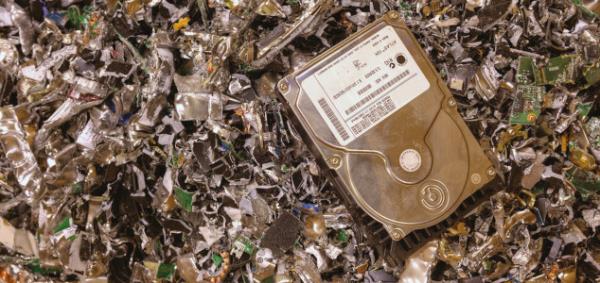22 February 2019

The reluctance of firms to dispose of old tech is costing an average of more than $100,000 per year.
A survey of 600 data centre experts spanning Europe, North America and Asia Pacific found two-in-five global firms waste over $100,000 per year hoarding outmoded IT equipment, because of security and compliance risks.
The results of The High Cost of Cluttered Data Centres, conducted by Blancco Technology Group in conjunction with Coleman Parks, further found that 74 per cent of UK companies said at least 26 per cent of all RMA drives located on their premises were still on there because they were unwilling to send them back to the relevant manufacturers. Furthermore, a quarter of those surveyed admitted that over half of their RMA drives are gathering dust for the same reason.
However, organisations gave a similar answer when asked why they had not returned hardware once the lease was up, with 63 per cent of UK businesses claiming manual/time-consuming processes. In addition, 49 per cent highlighted security and/or privacy concerns – the highest percentage points from all of the countries that took part in the survey. Although each country voiced their own priorities and concerns, UK firms were most worried about GDPR (43 per cent). This was followed by increasing automation across the data centre (41 per cent).
Fredrik Forslund, vice president enterprise and cloud erasure solutions at Blancco, said the industry is witnessing a raised level of awareness due to new laws and regulations, such as GDPR.
“For the most part this has had a positive effect since it will improve data privacy and protection in general,” he told Networking+. “However, it also creates challenges for operational teams to carry out necessary process updates, which in the meantime can lead to increased stock piling of hardware.”
Forslund said it would be prudent for firms to deal with organisations that can securely process and erase hardware to minimize the negative effects of relinquishing data.
Steve Hone, chief executive officer of Data Centre Alliance agreed: “Just because you deem your kit to be “end of life” does not mean it has to go straight to landfill or the crusher;” he said. “In fact, quite often, what you no longer want may be exactly what another business has been looking for and therefore it still has an intrinsic value which can be realised.”
One such company that upcycles ageing technology is Techbuyer. Danny McShane, head of IT asset disposition at the company, said returning hardware to the manufacturer for reuse is one option but firms could be inclined to make money from old goods.
“A great alternative that comes with a cash return is to contact a secure ITAD company who will carry out data erasure to military standard and ensure the materials in them do not go to landfill,” he said. “With a cash return on retired hardware plus the peace of mind of secure, environmentally friendly disposal, this is a great solution for data centres worldwide.”
Nevertheless, the findings are a clear indicator of the extent to which companies worldwide feel powerless in their efforts to prevent reputational damage. Therefore, they would prefer to spend large sums of money storing often obsolete technology to protect themselves against misuse of data.










